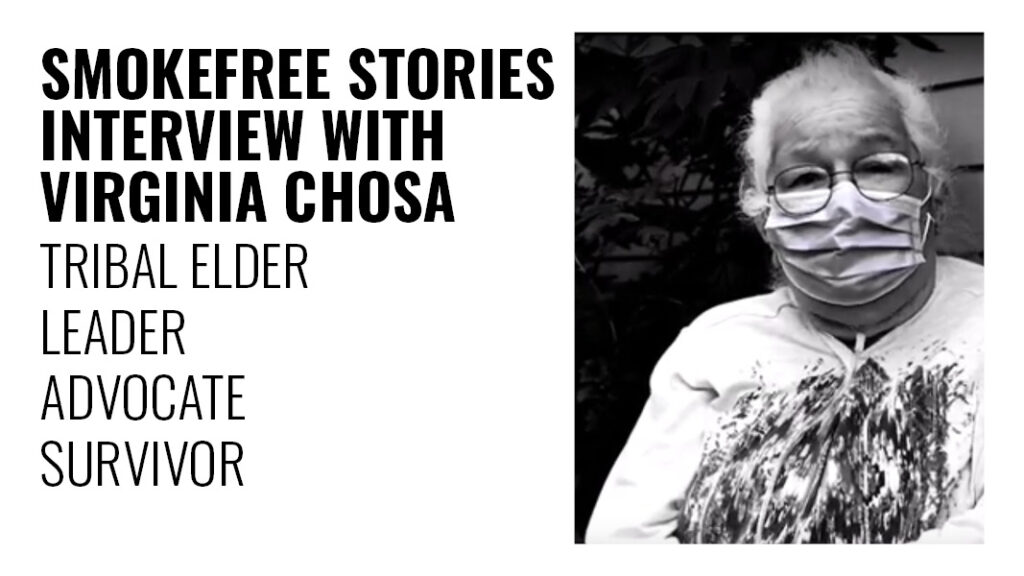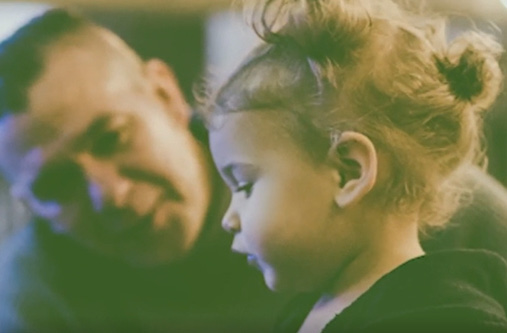Targeted for decades by the tobacco industry, yet leading the way on smokefree policies
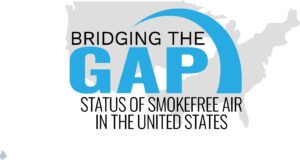
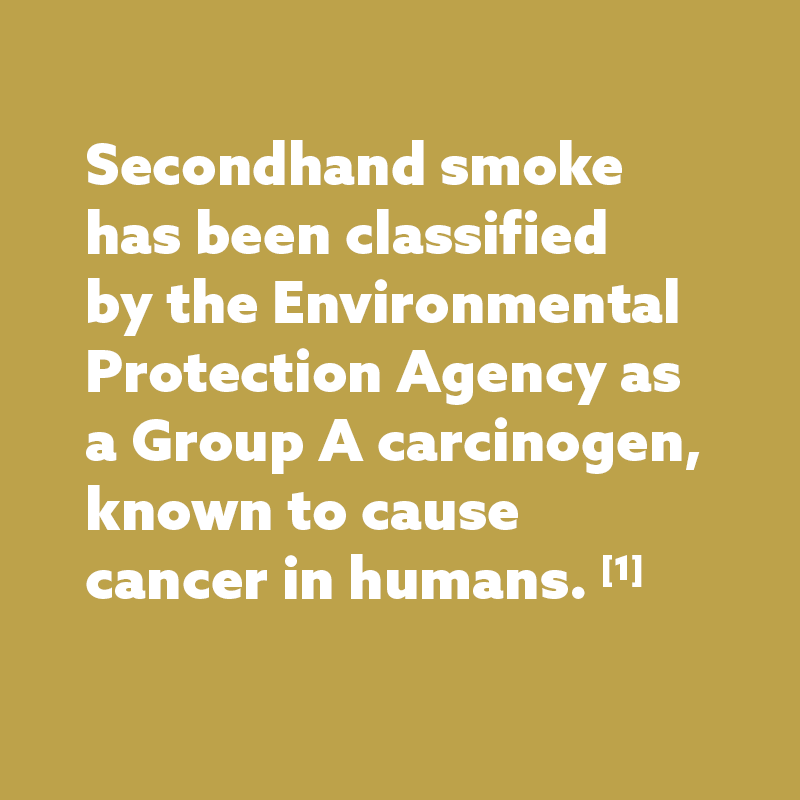
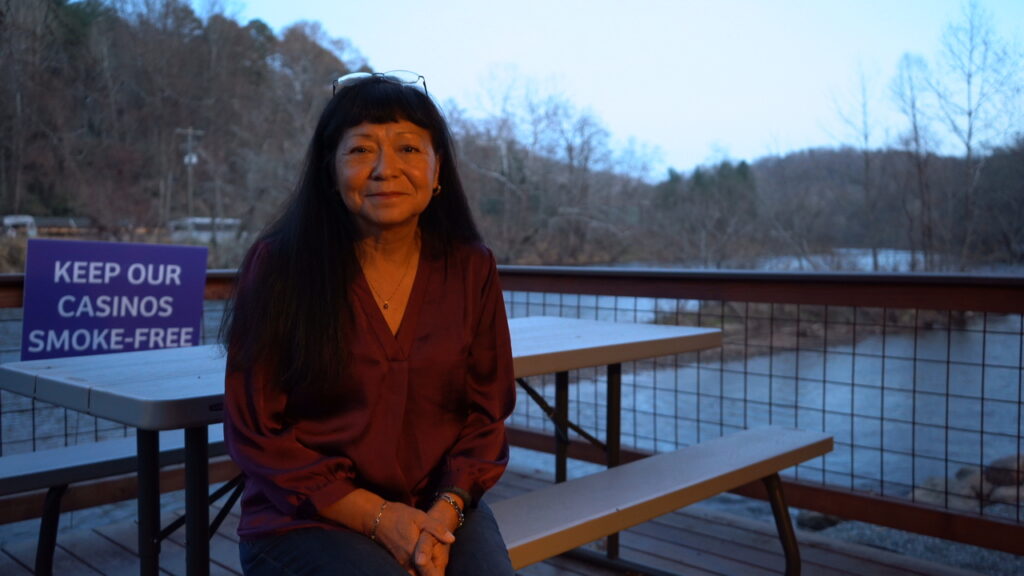
Traditional tobacco
The U.S. government formally recognizes 574 Tribal nations in the contiguous 48 states and Alaska. This report highlights the leadership of a handful of Tribal nations that have used their sovereign authority to adopt strong smokefree laws to protect the health and safety of their communities.
Traditional or ceremonial tobacco is tobacco and/or other plant mixtures grown or harvested and used by American Indians for ceremonial, spiritual, and medicinal purposes. Traditional tobacco is NOT commercial tobacco.
Commercial tobacco companies have targeted American Indians and Alaska Natives (AI/AN) for decades and therefore American Indian and Alaska Natives carry a disproportionately high burden of commercial tobacco use compared to other racial groups and ethnicities in the United States.
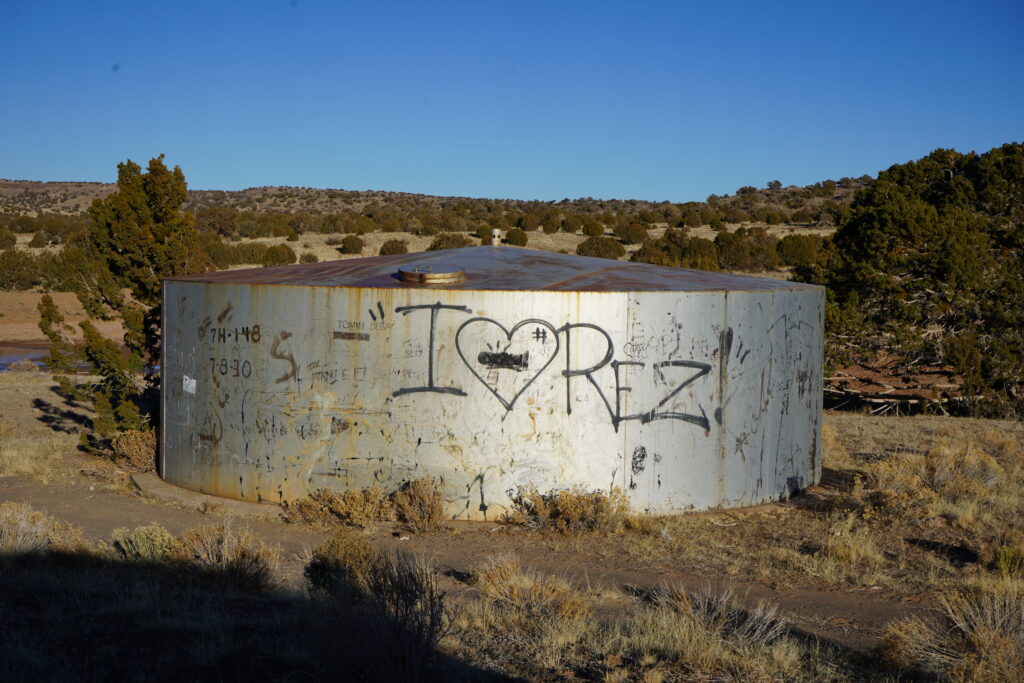
- Commercial tobacco is not the sacred tobacco used in healing and other ceremonies by many Tribes. Indigenous tobacco became exploited as colonization destroyed Indigenous communities.
- The tobacco industry targets Native Americans.
- Navajo Nation passed the Niłch’ éí Bee Ííńá – Air is Life Act in 2021, the first comprehensive ban of commercial tobacco products on American Indian Tribal lands.
- Cherokee Nation was one of the first Tribes to pass a strong Tribal commercial tobacco-free law, but it excludes casinos.
- 574 Tribes are recognized by the U.S. government.
- “The tobacco industry has misappropriated culture and traditional tobacco by misrepresenting American Indian traditions, values and beliefs to market and sell their products for profit.” Source: https://tobaccocontrol.bmj.com/content/27/e1/e57
Tribal Policy Making
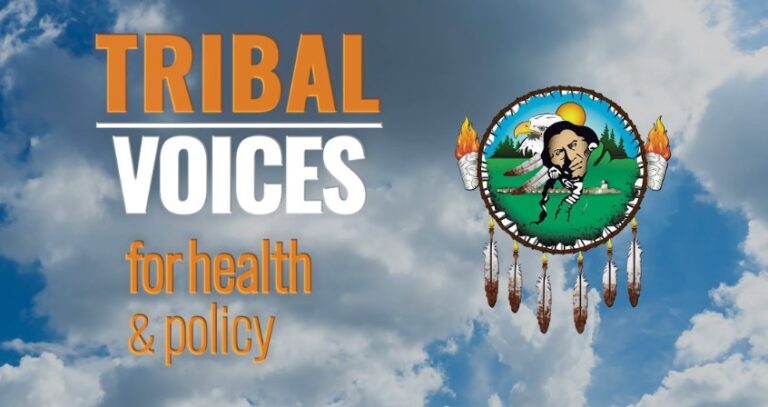
Tribal-specific commercial tobacco policies are culturally relevant and can include language to support the repatriation of ceremonial tobacco. Tribal tobacco policies provide communities with a holistic approach to reduce commercial tobacco use, improve health outcomes, and reverse the impacts colonization had on tobacco. Tribal sovereignty and its policy-making process can be both impactful and unpredictable.
Passing Tribal legislation can be a lengthy process and it requires cultural competency from all parties involved. Providing technical assistance and engaging community members with cultural awareness strengthens Tribal policy initiatives, which leads to narrowing health disparities in Tribal communities.
The first step to becoming familiar with AI/AN cultural practices and customs is to learn local Tribal history, culture, and sovereignty, such as the Tribal law and policy-making process.
It is important to understand that the Tribal policy making process looks different across Tribal communities. Community members or Tribal citizens typically initiate the need for a policy in their community to a council of elected representatives.
A Tribal council has the ultimate authority to create law and policy and to self govern as an independent state or sovereign nation. Tribal leaders have pursued their right to exercise Tribal sovereignty for centuries in order to shape and influence community outcomes.
preemption does not affect tribal policy-making
Sovereign nations CAN pass policies to ensure protection and health equity for all members of the community. Preemption refers to situations in the United States in which a law passed by a higher level of government takes precedence over a law passed by a lower one. Preemptive state laws do not allow local authorities to enact strong local laws.
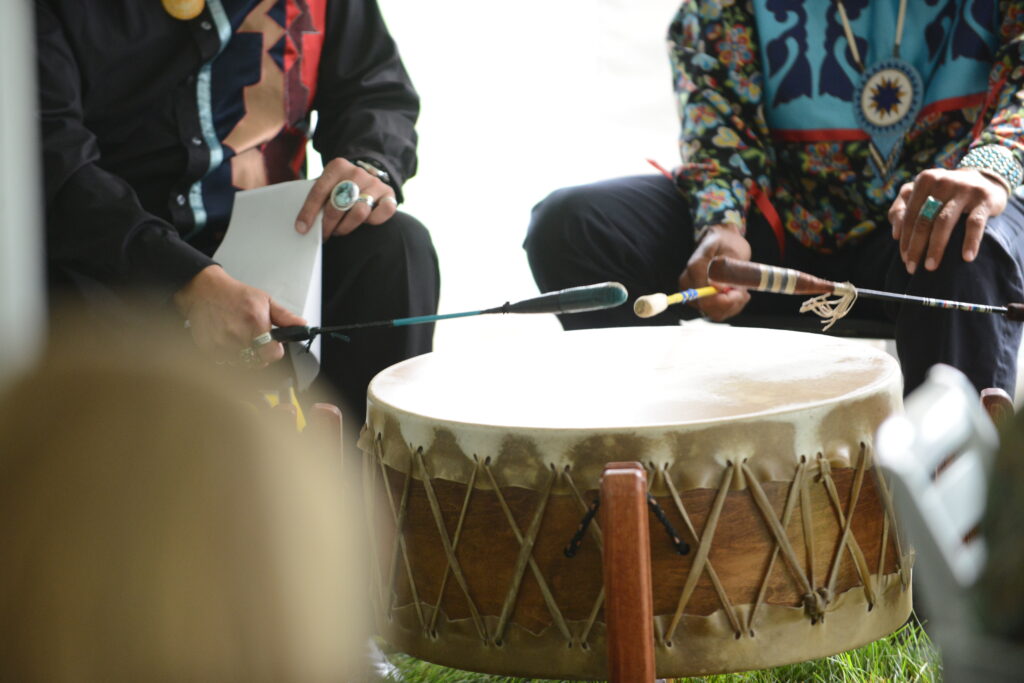

preemption does not affect tribal policy-making
Sovereign nations CAN pass policies to ensure protection and health equity for all members of the community. Preemption refers to situations in the United States in which a law passed by a higher level of government takes precedence over a law passed by a lower one. Preemptive state laws do not allow local authorities to enact strong local laws.
Current Landscape of Commercial Tobacco Smokefree Policies
This report focuses on a handful of strong Tribal smokefree policies: the Navajo Nation in the southwest, Cherokee Nation in Oklahoma, Ho-Chunk Nation in Wisconsin, and the Eastern Band of Cherokee Indians (EBCI) in North Carolina.
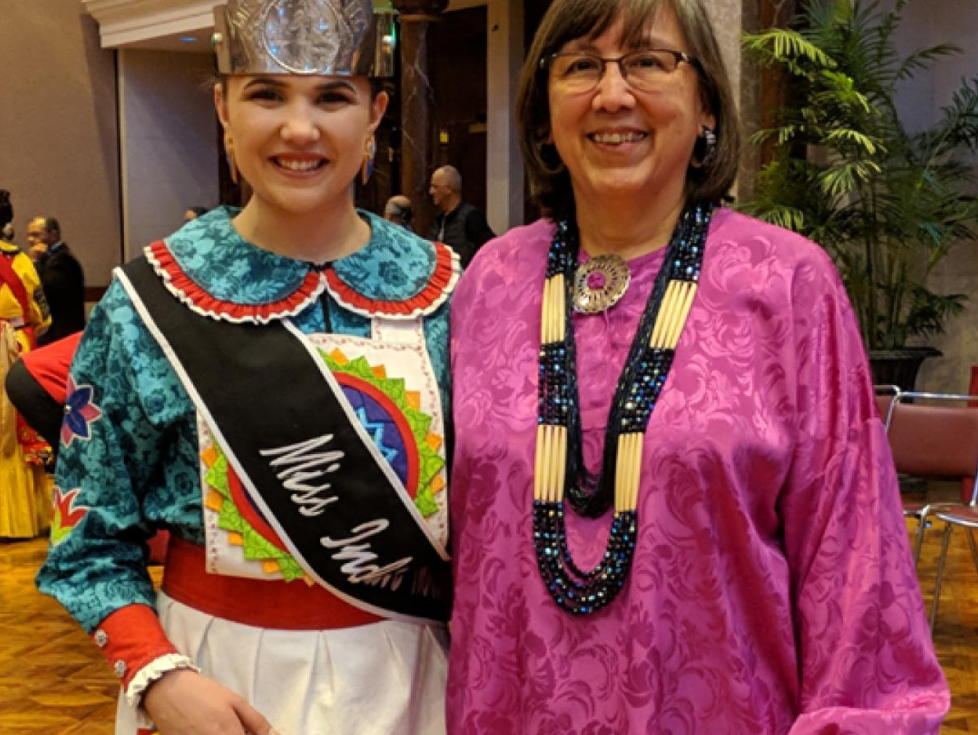
Cherokee Nation
Cherokee Nation in Oklahoma has one of the strongest smokefree policies in the state. Adopted in 2008, all Cherokee Nation Tribal workplaces, government buildings, schools, parks and other public places including outdoor Powwows are smokefree (with the exception of use of sacred tobacco for traditional, ceremonial purposes). Unfortunately, the policy exempts or excludes the ten Cherokee Nation casinos across the state. See our state report for more information on tobacco control issues in the state of Oklahoma.
Ho Chunk Nation, Wisconsin
In June 2015, Ho-Chunk Gaming Madison (HCGM) announced it would be the first 100% smokefree Tribal gaming facility in the state, effective August 1, 2015. The policy allows for indoor use of electronic smoking devices and outdoor spaces for smoking. “We’re excited to offer our guests and employees a completely smokefree environment,” Daniel Brown, the executive manager at the facility, said in a press release. “We believe that we are among the first business which is choosing to do this on our own, rather than being publicly mandated to do so.” In November 2019, Ho-Chunk strengthened its policy to eliminate the use of electronic cigarettes and vaping inside their Madison casino.
ANR Foundation has helped facilitate conversations in the past between Ho-Chunk Gaming Madison and Tribal coalitions seeking to pass comprehensive smokefree policies, and gaming industry leaders often cite HCGM as an example for long-term smokefree policy success.
The Ho-Chunk Nation provided a roadmap for many of the changes needed in the gaming industry in 2020 and continues to model the path toward successful smokefree gaming as demographics continue to change. Today, Ho-Chunk Nation’s flagship casino is the Madison site, and all seven Ho-Chunk Gaming casinos located throughout Wisconsin are 100% smokefree.
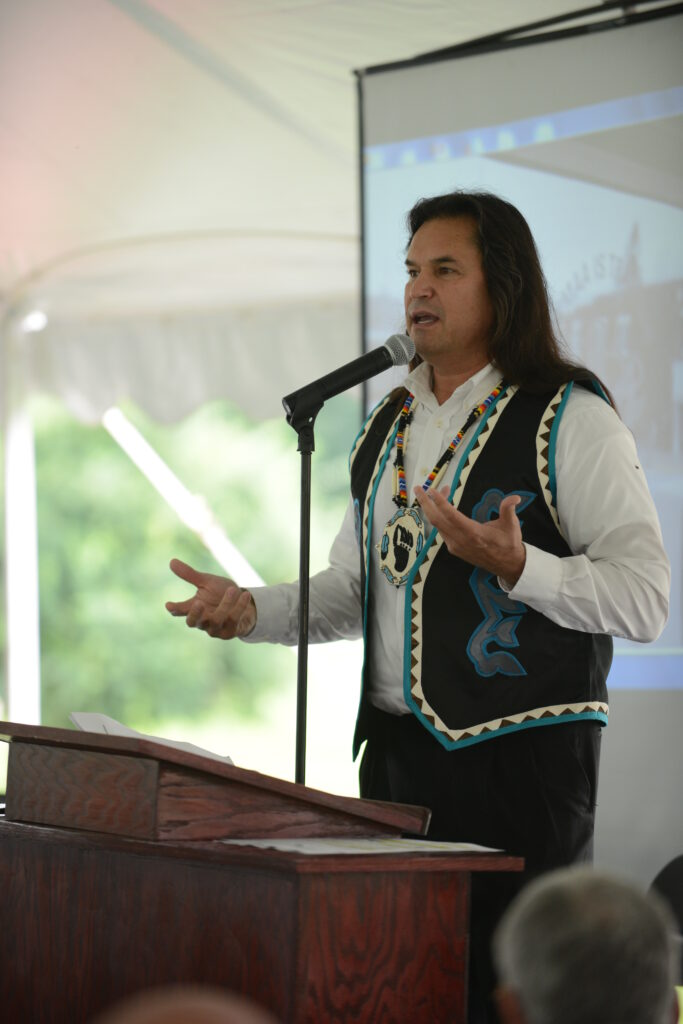
Navajo Nation, Arizona, New Mexico, Utah
In 2021, the Navajo Nation passed, Niłch’ éí Bee Ííńá, the Air is Life Act, which is one of the most comprehensive commercial tobacco policies in the country. The Air is Life Act protects citizens from secondhand smoke in all Navajo Nation indoor public places including within Tribal gaming facilities.
This landmark decision was the result of more than a decade of education and previous attempts to pass a smokefree law for all workplaces. In the past, the casino industry had a stronghold over lawmakers and successfully weakened strong smokefree proposals more than once. Armed with health, economic and player preference data, along with the public support for strong public health policies during the pandemic, the Air is Life coalition reorganized and worked with strong leaders to introduce a law that included casinos.
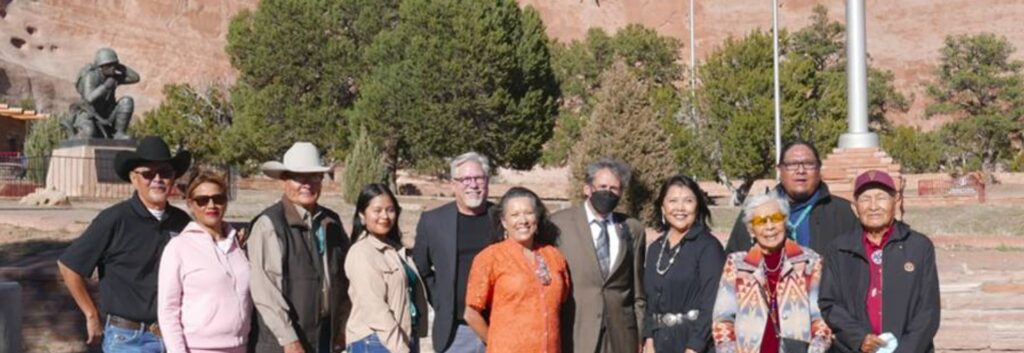
Eastern Band of Cherokee Indians (EBCI), North Carolina
Shortly after the Navajo Nation passed the Niłch’ éí Bee Ííńá, the Air is Life Act, the Eastern Band of Cherokee Indians (EBCI) voted in December 2021 to make existing gaming floors at their Harrah’s properties smokefree, but tacked on an exemption that allows slot machines within nonexistent outdoor smoking areas.
The steps that were required for policy change in both the Navajo Nation and the Eastern Band of Cherokee Indians are prime examples of how Tribal sovereignty influences and improves public health. Proponents from each community drafted culturally appropriate policy language, provided education regarding the issue and specific components of the policy, and collaborated with their respective Tribal council leaders to solicit support. Outside entities, such as the ANR Foundation, provide technical support and other resources based on the immediate need of the Tribal policy process.
The Navajo Nation and the Eastern Band of Cherokee Indians Tribal leaders are ultimately responsible for protecting the health of Tribal citizens. By passing Tribal commercial tobacco policy, they will eliminate the exposure of secondhand smoke and prevent the irreversible harm that commercial tobacco causes in many communities.
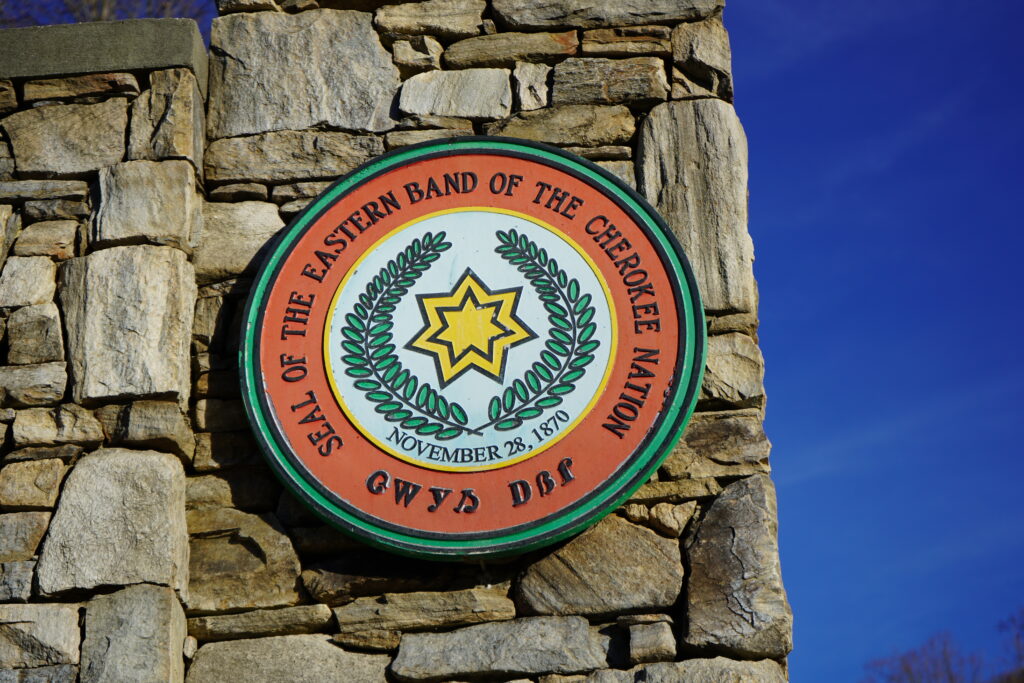

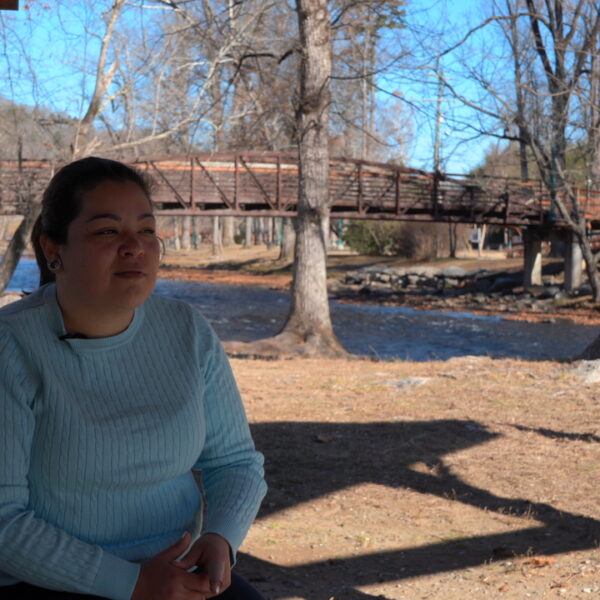
HEALTH CONSEQUENCES OF COMMERCIAL TOBACCO USE AND SECONDHAND SMOKE EXPOSURE
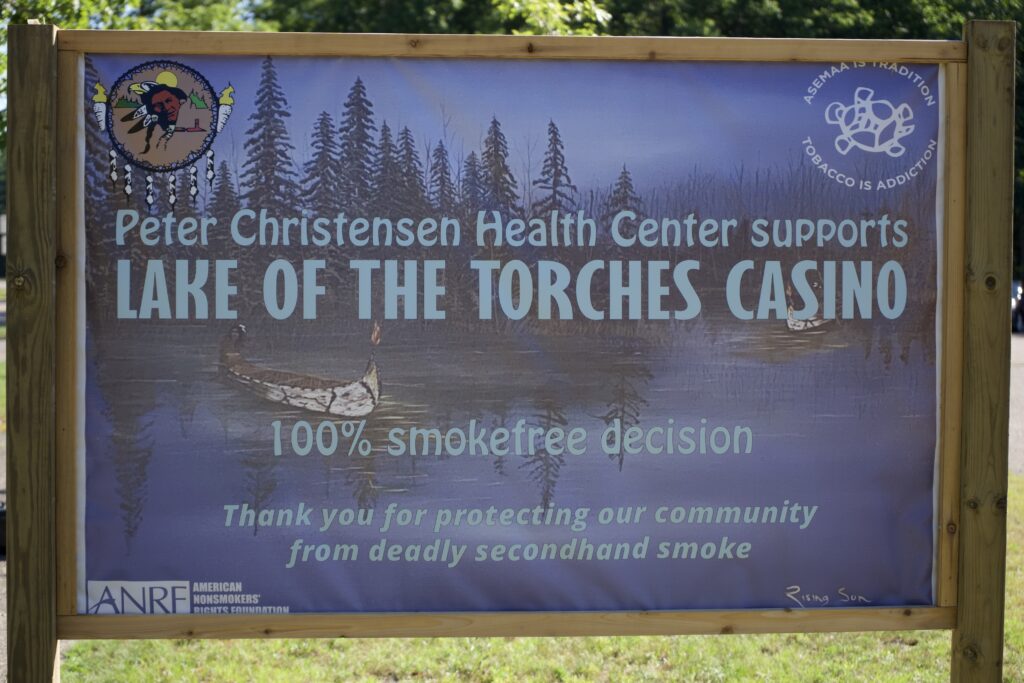
Health Outcomes
American Indian and Alaskan Native (AI/AN) populations experience the highest disparities and negative health outcomes–related to commercial tobacco use and exposure–compared to other racial groups in the United States. The CDC’s Office on Smoking and Health show that 1 in 5 (22.6%) of AI/AN adults use commercial tobacco, which inevitably results in increased exposure to secondhand smoke (SHS).
There is no safe level of exposure to secondhand smoke from commercial tobacco. Secondhand smoke can cause heart disease, stroke, lung cancer, and other adverse health outcomes.
Diseases of the heart, cancers, and other respiratory diseases are leading cause of death for both American Indian and Alaska Native men and women. Cancer incidence rates are significantly higher among AI/AN populations and cancer mortality rates are also much higher when compared to other racial groups in the United States.
Tribal gaming
In the 1970s and 1980s, Tribal gaming was created to help generate revenue towards infrastructure and increased programming for health and education services on Indian reservations. State and local governments argued against Tribal sovereignty during the inception of Tribal gaming, but their arguments failed to persist due to the significance of Tribal sovereignty in federal law.
Tribal gaming is now a multi-billion-dollar industry and has grown considerably since the landmark 1987 Supreme Court case decision California v. Cabazon Band of Mission Indians. Tribal leaders paved the way for Vegas-style gaming by exerting their sovereign right to self-govern, and they continue to use Tribal sovereignty as a tool to influence and govern their communities. Today, over 500 Tribal gaming facilities, owned and operated by 250 distinct federally-recognized Tribes, employ over 600,000 people. Revenues from Tribal gaming have significantly impacted Tribal membership with long-sought benefits like elder-care, health insurance, improved Tribal housing, and much more.
The National Indian Gaming Commission reported a 40% increase ($39 billion) in Tribal Gross Gaming Revenue in 2021. The new figures offer the latest evidence that pandemic-related health and safety measures put in place during 2020, such as providing a smokefree environment, did not negatively impact the Tribal gaming bottomline.
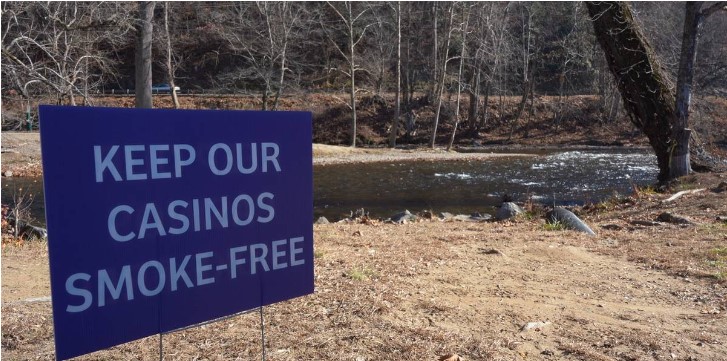
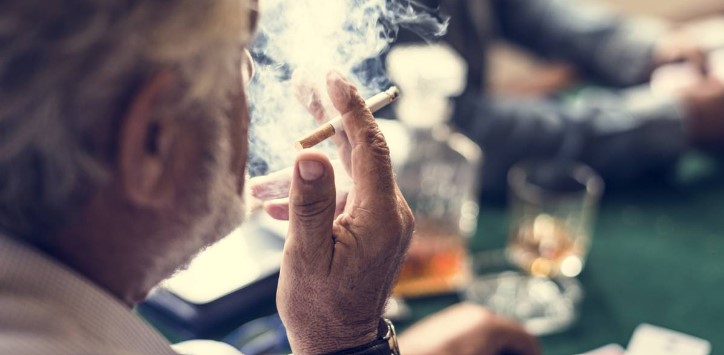
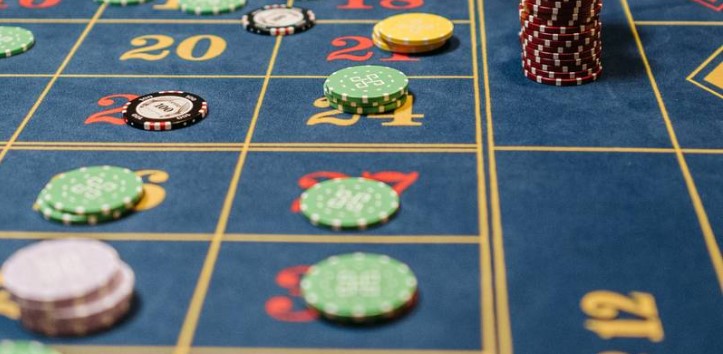
COVID Reminds Us That Health Promotion Policies Matter
Smoking and vaping, along with exposure to secondhand smoke and aerosols, negatively impact the respiratory system and may cause a person’s immune system to not function properly, known as being immunocompromised. Research demonstrates that current and former smokers of any age are at higher risk of severe illness from coronavirus disease (COVID) in part due to compromised immune and/or respiratory systems. Smoking leads to cardiovascular disease, as well as respiratory illnesses including bronchitis, asthma, Chronic Obstructive Pulmonary Disease (COPD), and lung cancer as a result of exposure to particulate matter, toxins, and carcinogens into their lungs. Secondhand tobacco and marijuana smoke and aerosol contain many of the same toxins, carcinogens, and particulate matter that lead to respiratory and cardiovascular diseases.
Removing masks to smoke or vape indoors undermines the proven benefit of face coverings and increases the risk of transmitting or inhaling COVID via infectious respiratory droplets, uncovered coughs, and increased touching of faces. Preventing exposure to secondhand smoke and e-cigarette aerosol or vape by adopting a smokefree policy with no smoking or vaping indoors and moving smoking or vaping to socially distanced outdoor areas away from entrances, could help mitigate worker and public exposure to carcinogens and toxins, as well as COVID.
Just as social distancing and handwashing help prevent the spread of disease, eliminating secondhand smoke is critical to prevent acute and chronic diseases, and saves lives by reducing the risk of heart disease, stroke, respiratory diseases, and lung cancer by up to 30% at a population wide level. Going smokefree prevents exposure to the carcinogens and toxins in secondhand tobacco and marijuana smoke as well as dramatically reduces the spread of respiratory droplets that could transmit flu and other viruses like COVID.
“There is so much momentum, and everyone’s voice is needed for the challenges ahead. Our work is not done until every single Tribal citizen is guaranteed safe breathing environments where they work, live, and have fun. This work is about holistically improving the quality of life for American Indians, casino patrons, and employees everywhere.”
ANRF Op-Ed in the Duluth Tribune News, September 19, 2020
Tribes led the way in Smokefree Policies during COVID pandemic
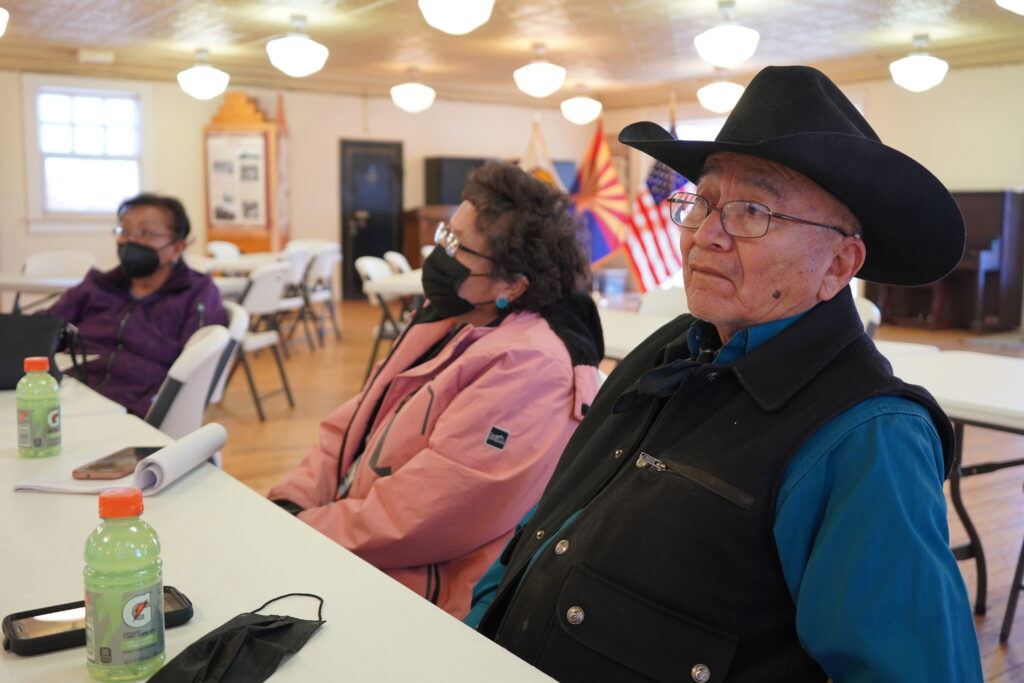
During the height of the pandemic, more than 150 sovereign Tribal casinos implemented 100% smokefree indoor air policies as part of COVID safety measures to help ensure a safe, clean environment for staff and guests. Most of these smokefree policies have remained in effect long-term as part of casino management and/or HR policy. Tribal gaming leaders took the necessary steps to ensure the health of future generations are protected by eliminating indoor secondhand smoke from their gaming facilities. Tribal communities are using this opportunity to end smoking in all Tribal casinos and to decolonize tobacco once and for all.
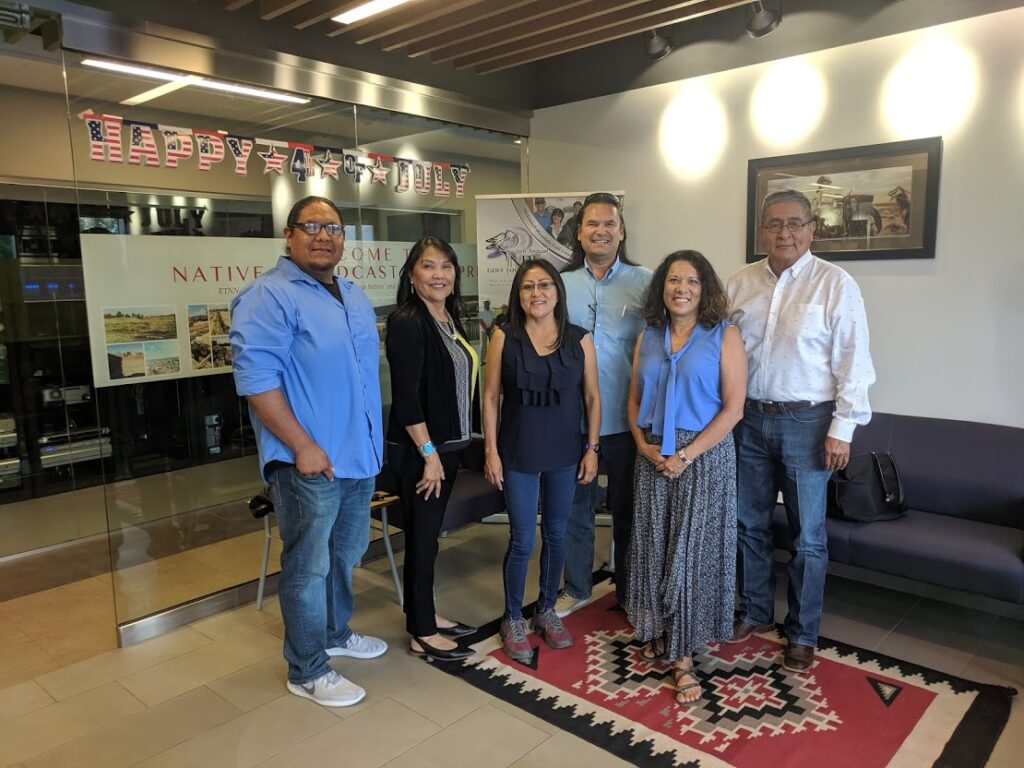
Tools and Resources
ANR Foundation has developed numerous tools and resources to support Tribes in considering and implementing smokefree policies.
This library of educational videos on a wide range of topics including “Health benefits of Tribal casinos going smokefree” to the “Financial Benefits of Reopening Tribal Casinos Smokefree.”
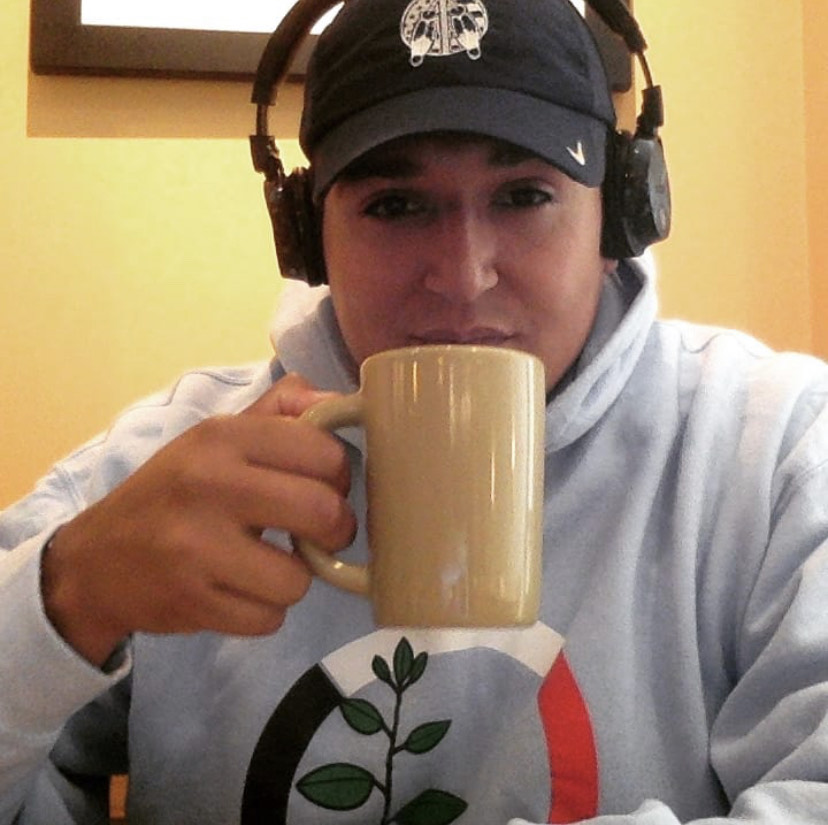
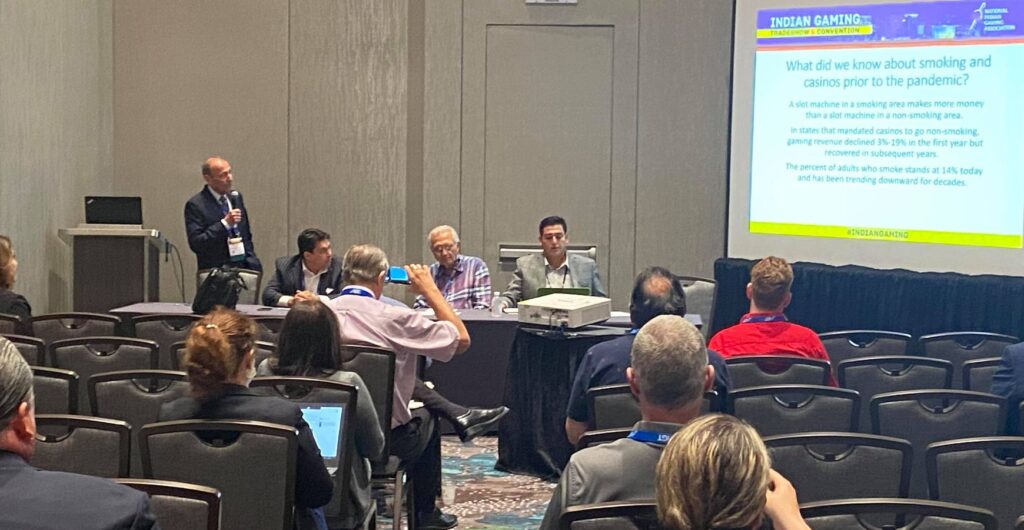
Webinars
Webinars became an effective means of getting the smokefree message shared throughout the pandemic. As casinos struggled to re-open towards the end of 2020, a webinar was hosted by the National Indian Gaming Association to discuss the reopening of smokefree Tribal casinos with Chairman Rodney Butler of the Mashantucket Pequot Tribe and Jason Giles and Victor Rocha of the National Indian Gaming Association.
ANR Foundation also co-hosted a webinar with the Great Plains Tribal Chairmen’s Health Board and speakers included members from the Black Hills Center for American Indian Health, the National Indian Gaming Association, National Native Network, Brian Christopher Slots, Turtle Mountain Band of Chippewa Indians, and the Tribal council of the Standing Rock Sioux Tribe.
More recordings of virtual meetings can be found here.
Past and present data on gaming smoking preferences
Creating resources like infographics that highlight data on patron smoking preferences are powerful tools that can help with any stage of a smokefree gaming advocacy effort.
Prior to the pandemic, CDC study data on smoking preferences in casinos was the primary source of information used to advocate for smokefree gaming. The study found very high favorability among those age >64 (81.6 %), college educated (81.7%), and higher income (79.1/80.8%). Smokers made up 13% of the sample, and, of those smokers, nearly half (45%) supported smokefree casinos.
In 2021, ANR Foundation Tribal Relations consultant, Clinton Isham served as a panelist to discuss smokefree gaming at the Indian Gaming Association Tradeshow and Convention. The panel titled “Smoking in Casinos: Did We Have It Wrong?” included a presentation highlighting the latest data on patron smoking preferences by the late Michael Meczka of MMRC. His study found that the primary reason for patrons visiting a casino is that it is close to home and does not allow smoking. Also, close to 80% of respondents answered that they prefer gambling in smokefree settings.
A Sample Guest Survey
A guest survey is a great tool for Tribal gaming leaders and health coalitions to gauge customer smoking preferences. A similar survey by BCSlots, for example, found that most frequent gamblers are nonsmokers. The results can be influential to policy decisions at individual casinos and/or for Tribal policy development. For example, a health coalition in North Carolina also used a modified version of the survey to provide data directly to the Catawba Tribal nation when the Tribe was in the process of opening a casino in North Carolina. The Tribe indicated it was inclined to open smokefree in part due to the survey findings.
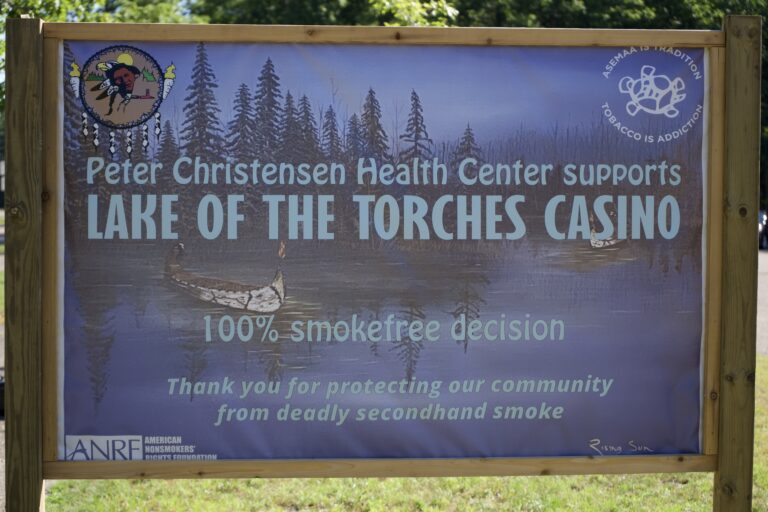
This popular resource helps for seeing smokefree casinos across a region.
Banners, Ads and Signage
Lake of the Torches Resort Casino (LOTC), owned and operated by the Lac du Flambeau Band of Lake Superior Chippewa Indians, had implemented a temporary smokefree policy upon reopening in 2020 that thanked LOTC for their decision to reopen smokefree and explicitly stated why smokefree policies are so important to the cultural vitality of Lac du Flambeau. The signs were strategically placed in high traffic areas across the PCHC campus. This initiative was recently shared with the KERES program in New Mexico, and ANRF assisted with an adapted “voucher strategy” that will be used for the first time at NM Tribal casinos in 2021.
Strategies to Close Gaps & Increase Health Equity
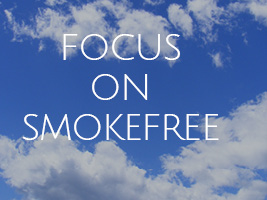
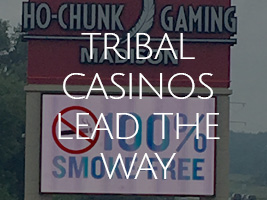

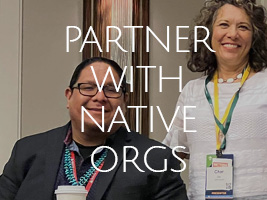
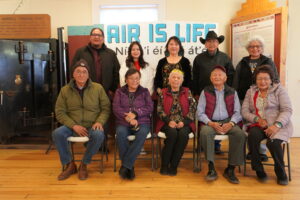

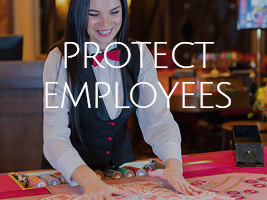

Focus on smokefree policies: Implementing policies that substantially limit or eliminate commercial tobacco use in Tribally-controlled spaces is an effective way of reducing the health risks associated with secondhand smoke exposure. Competing issues can distract and delay work on smokefree policies. Smokefree laws have immediate and long-term health and economic benefits, and they are worth the investment of time and effort to protect everyone from exposure to a known human carcinogen.
Tribal Casinos Leading the Way: Sovereign Tribal nations have led the way for protecting workers in Tribal casinos, often prioritizing worker health over profits. Tribal casinos are improving the social determinants of health in many rural American Indian communities. Thus Tribal communities may be uniquely suited, particularly given their sovereign political and economic status, to play a leadership role in a smokefree casino movement.
Don’t buy the Ventilation Lie: Despite common misconceptions about non-smoking sections and expensive ventilation systems, 100% smokefree policies remain the only proven method of protecting tribal members, employees, and Tribal business patrons from the dangers of secondhand smoke.
Partner with Native Organizations and Coalitions: Relationship building is essential for advocates seeking to produce long-lasting community change. ANR Foundation has coordinated with national and Tribal partners in both educational and advocacy activities. Partners such as National Native Network, Alaska Native Health Board, Navajo Air is Life Coalition, Black Hills Center for American Indian Health (BHCAIH) and Regional Tribal Epidemiology Centers, have knowledge of the Tribe or Tribal traditions, connections with additional Tribal leaders, partners and individuals, and credibility within the community, and are incredibly passionate and committed to protecting Native health and safety from the hazards of commercial tobacco use and exposure to secondhand smoke.
Make an Impact wherever possible: Even if Sovereign Tribal leadership is not ready to pass a comprehensive commercial tobacco policy, impacts can be made in incremental steps such as coordinating policy initiatives with smaller Tribal governing board. For example, many vulnerable people live in Tribal housing and passing a policy to make that housing commercial tobacco-free will make a significant health impact. Tribal Housing Authority Board of Directors are equipped with the ability to create law on behalf of their tenants independently from Tribal Council. Sault St. Marie Tribal Nation, Turtle Mountain Band of Chippewa, and Red Cliff Nation have passed Tribal housing policies to great success.
In addition, many Tribes are making their traditional Pow-wows commercial tobacco-free. The United Tribes International Pow-wow has been 100% commercial tobacco-free since 2014. Additionally, the Waaswaaganing Indian Bowl – Living Arts & Culture Center has provided its guests with a 100% smokefree outdoor environment since 2016.
Adopt a business/HR policy for protecting employees from secondhand smoke – ANR Foundation, together with Public Health Law Center has developed smokefree policy templates that incorporate culturally respectful language and policy options depending on what is needed from individual Tribal casinos. This can be a way for Tribal gaming leaders to formalize smokefree casino HR and management policies.
Focus on Funding: Successful commercial tobacco prevention and control in Tribal communities is not possible without adequate financial support to Indian healthcare systems from state and federal funders. Tobacco-free organizations and similar advocacy groups can help with commercial tobacco prevention measures in Tribal communities as well.
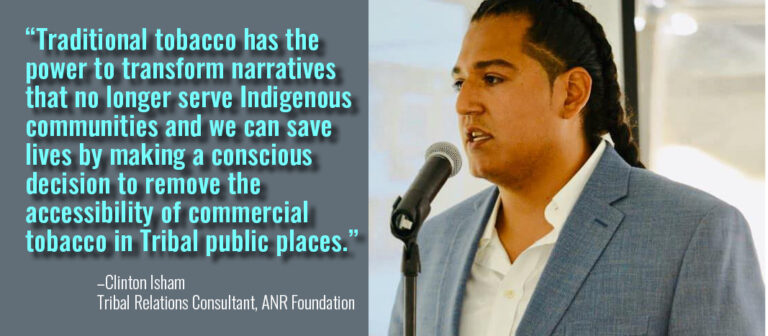
November 2022
